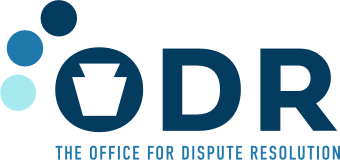Where Do I Begin
Even when parents and school officials try their best to develop and provide an appropriate program for a child, disagreements can occur. If you do not believe your child’s special education program is working, you should first talk to your child’s teacher. You can request an IEP meeting to discuss your child’s program and to explain why you think a change is necessary. You can also reach out to the special education director of the school district or charter school to identify and discuss your concerns.
CADRE, the national Center for Appropriate Dispute Resolution in Special Education, has created the Working Together Online Learning Series. These self-directed courses provide families and educators with a number of strategies for working together and through conflict. Using these strategies may be helpful in working with your school.
If the concerns about your child’s special education program can not be resolved at the school district level, there are other options available to help reach agreement. Some of these options are required by the special education law and described in the Procedural Safeguards Notice. There are other dispute resolution processes available for resolving disagreements. Although not mandated by the special education law, these have been found to be beneficial in resolving special education conflicts. All of these processes are provided by the Office for Dispute Resolution (ODR) and each process involves a neutral, third-party participant.
Learn more about these options by viewing the Quick Guide.
Pennsylvania Quick Guide to Special Education Dispute Resolution

CADRE, the National Center on Dispute Resolution in Special Education, developed a comparison chart that looks at national dispute resolution processes from a variety of perspectives.
IEP Facilitation: A voluntary process that can be used when all parties to an IEP meeting agree that the presence of a neutral third party would help facilitate communication and the successful drafting of the student’s IEP.
Mediation: A voluntary and confidential meeting in which an impartial mediator helps parents and the school discuss the issues and when possible, reach an agreement about the child’s special education program. The mediator helps the parties draft a mutually agreed upon resolution. The special education law states that the Mediation Agreement is considered legal, binding, and enforceable in a court of law.
Due Process Hearing: A formal hearing that is similar to a trial in front of a Hearing Officer who is an administrative law judge. The Hearing Officer writes a decision based on their analysis of the information presented during the hearing.
Resolution Meeting Facilitation: A voluntary process during a Resolution Meeting where a trained facilitator works with both parties to resolve disagreements, which could eliminate the need to move forward with due process.

